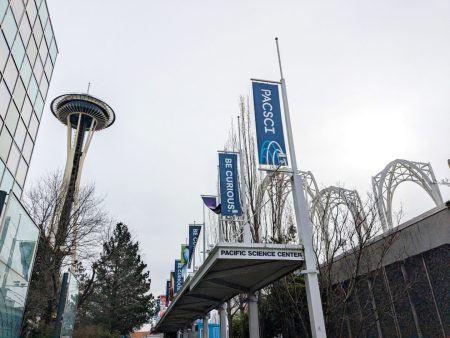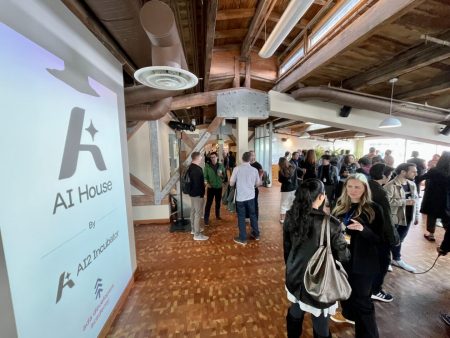The Closing of Find Ventures: A Reflection on Inclusive Entrepreneurship
Find Ventures, a startup program dedicated to supporting early-stage tech companies and underrepresented entrepreneurs in Washington state, is closing its doors after six years of operation. Co-founded by Elizabeth Scallon and Justin Brotman (son of Costco co-founder Jeffrey Brotman) in 2019, the organization faced insurmountable funding challenges that ultimately led to its closure. “Over the past years, I’ve sought additional funders and partners to sustain this mission,” Scallon explained on LinkedIn, “but with the shifting macro environment, from lawsuits against equity-focused funds to rollbacks on DEI, donors grew hesitant.” Rather than competing with other nonprofits for limited resources, Find Ventures made the difficult decision to close, notifying its founders, donors, mentors, and advisors in May. The organization’s remaining funds will be transferred to the Buerk Center for Entrepreneurship at the University of Washington, ensuring their mission of supporting entrepreneurship continues in some form.
Find Ventures had previously raised $700,000 from over 30 donors to support its inaugural Equitable Innovation Accelerator in 2022, run in partnership with the Washington state Department of Commerce. What made this program unique was its approach to funding—providing non-dilutive capital without requiring entrepreneurs to give up equity or ownership, a rarity in the startup world. The accelerator supported ten startups, including notable success stories like legal tech company Clearbrief and observability startup WhyLabs, which went on to secure additional funding rounds. The organization also formed partnerships with other regional institutions, including a collaboration with the Port of Seattle on a business accelerator supporting small businesses. Find Ventures’ model represented an alternative path for entrepreneurs who often face significant barriers in traditional funding landscapes.
Scallon, who currently serves as director of incubation at HP and teaches as an adjunct at the University of Washington’s business school, emphasized that supporting underrepresented entrepreneurs—including women, people of color, and LGBTQ+ founders—remains crucial as innovation continues to accelerate. “In times like these, entrepreneurship must be accessible to all,” she told GeekWire. “We need broad participation so that innovation is distributed widely, not concentrated in the hands of only a few.” This perspective highlights the ongoing challenges faced by entrepreneurs from diverse backgrounds, who often encounter systemic barriers when seeking funding and support. Despite Find Ventures’ closure, Scallon’s commitment to inclusive entrepreneurship remains steadfast, emphasizing that diverse voices are essential to creating innovations that truly serve humanity.
Through its journey, Find Ventures uncovered important lessons about entrepreneurial support and funding models. Traditional startup funding mechanisms—loans and equity investments—can sometimes disadvantage underrepresented founders who may lack networks, resources, or experience to negotiate favorable terms. “We highly recommend that founders reach out to their trusted council before agreeing to any terms,” Scallon advised, highlighting the need for accessible guidance. Another insight concerned the nature of support offered to entrepreneurs: while many are willing to donate time and expertise, financial capital remains harder to secure. Additionally, the program found that advice from long-established entrepreneurs sometimes proved less relevant in today’s rapidly evolving market environment. “Founders need current operators that are one or two steps ahead of them to apply the learnings, as the market is dynamically moving at rapid speed,” Scallon observed.
Perhaps most significantly, Find Ventures recognized that successful entrepreneurial support extends beyond business mechanics to encompass holistic leadership development. The organization partnered with Julie Pham’s Seattle-based CuriosityBased group to provide comprehensive training that addressed both technical and human aspects of leadership. “We need to support early stage founders with holistic support, not just in the mechanics and technicalities of running a business, but also the human aspects of being a leader,” Scallon explained. This approach acknowledged that entrepreneurship involves much more than business strategy—it requires resilience, adaptability, and interpersonal skills that are rarely taught in traditional business education. By addressing these human elements, Find Ventures sought to prepare founders not just for immediate business challenges but for long-term leadership roles.
The closure of Find Ventures reflects broader tensions in the entrepreneurial ecosystem concerning access, equity, and inclusion. In a landscape where funding has historically flowed predominantly to founders from certain backgrounds and networks, organizations like Find Ventures represented important counterbalances. As Scallon noted, “Expanding access to entrepreneurship isn’t just about opportunity, it’s about ensuring the future is shaped by diverse voices and ideas that truly represent humanity, leading to stronger and more meaningful solutions for us all.” This perspective frames inclusive entrepreneurship not merely as a social good but as an economic and innovation imperative—ensuring that the next generation of companies, products, and services reflect and serve the full spectrum of human experience. While Find Ventures may be closing, the values and insights it championed remain vital for building a more equitable and innovative entrepreneurial ecosystem, one that harnesses the full creative potential of diverse entrepreneurs to address our shared challenges.















